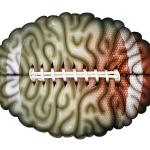The most common form of dementia, Alzheimer’s Disease (AD), currently afflicts 5.5 million adults in the United States and is estimated by 2050 to impact 13.8 million (age 65 or older).
Why is this happening?
dementia
If you just read the headlines, you'd immediately run to your pantry (or wherever you keep soft drink) and pour all your diet sodas down the sink.
Because of their high cholesterol content, eggs were seen as dietary villains by many, in spite of their being sources of high quality protein, low levels of total and saturated fats, and a number of other nutritional benefits (for more on eggs, r
China, with one of the largest – if not the largest – elderly population on Earth, has a strong incentive to learn how to support or improve cognitive function for its older citizens.
Now that winter has hit the northern hemisphere, our thoughts often focus on ways to keep warm.
A small, yet promising, brain trauma study may someday lead to a time when doctors can forecast which patients who incurred concussions or repeated blows to the head will be at risk for future neurological problems.
The prevalence of dementia in the United States significantly declined from 11.6% in 2000 to 8.8% in 2012. A new study by JAMA Internal Medicine









